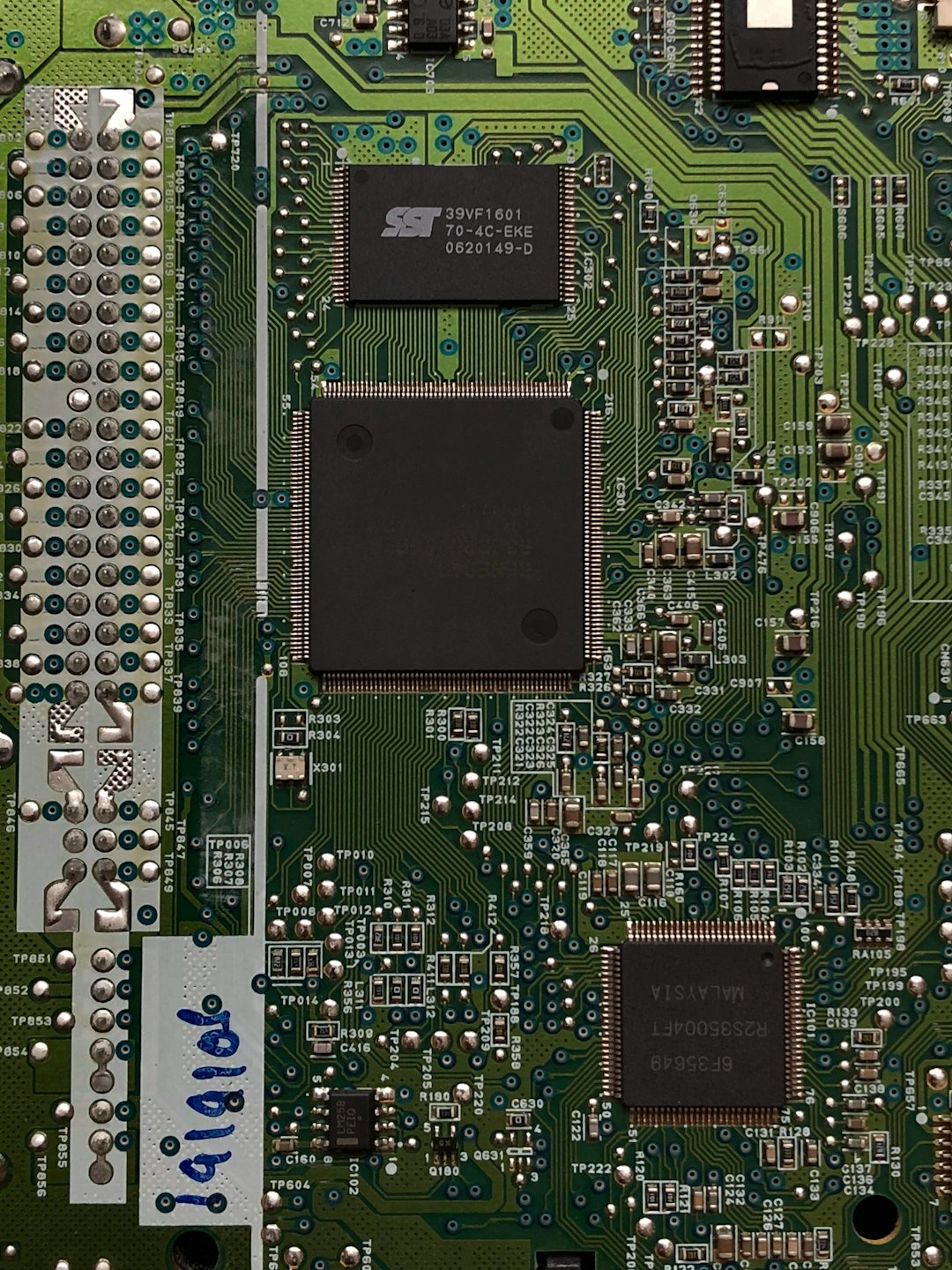The ever-present CPU rivalry between AMD and Intel has reached a new peak in 2024 with the release of their latest flagship processors: AMD’s Ryzen 9 9950X and Intel’s Core i9-14900K. Both chips represent the best consumer-grade desktop performance each brand has to offer, aimed squarely at gamers, creatives, and power users. But which one is the better choice for your needs?
TL;DR
The AMD Ryzen 9 9950X and Intel Core i9-14900K are both powerhouse CPUs featuring cutting-edge architecture. AMD leans on superior multi-core performance and energy efficiency, whereas Intel still leads slightly in single-threaded tasks and gaming at 1080p. The Ryzen 9 9950X may be a better choice for professionals and heavy multitasking, while the Core i9-14900K remains a go-to for raw gaming performance and broader compatibility with DDR4 memory. Overall, your choice depends highly on your primary workload and platform considerations.
Architecture and Technology Differences
The underlying architecture of a CPU plays a crucial role in determining performance, power efficiency, and thermal behavior. Both AMD and Intel have adopted different strategies to achieve desktop supremacy in 2024.
- Ryzen 9 9950X is built on AMD’s Zen 5 architecture, using TSMC’s advanced 4nm process. This results in significant gains in power efficiency, IPC (Instructions Per Clock), and thermal performance compared to its predecessor.
- Core i9-14900K is based on Intel’s refined Raptor Lake Refresh (14th Gen) and continues using the Intel 7 (10nm Enhanced SuperFin) process. While it brings modest improvements over the i9-13900K, it’s more evolutionary than revolutionary.
AMD’s decision to stay on a chiplet-based architecture allows it to scale cores effectively, while Intel continues to push hybrid core design, mixing Performance-cores (P-cores) and Efficient-cores (E-cores) in a single chip.
Core Counts and Threading
In terms of raw specifications, both CPUs bring high core counts suitable for top-tier workloads:
- Ryzen 9 9950X: 16 cores and 32 threads (all full-performance cores)
- Core i9-14900K: 24 cores (8 P-cores + 16 E-cores) and 32 threads
While Intel leads in core count, it’s important to note that not all cores are created equal. AMD’s homogeneous approach ensures consistent high performance across all cores, which pays dividends in multi-threaded professional applications.
Performance Benchmarks
Let’s break the comparison into two primary performance domains: gaming and productivity.
Gaming Performance
Intel still edges ahead in certain gaming scenarios, particularly in lower resolutions where CPU bottlenecks are more impactful. However, AMD has significantly closed the gap with the Ryzen 9 9950X. In 4K gaming, the difference is negligible due to GPU limitations becoming the dominant factor.
- 1080p: Slight Intel advantage (about 3–5% higher FPS on average)
- 1440p: Nearly even performance
- 4K: Performance differences are within the margin of error

Productivity and Creator Workloads
This is where the Ryzen 9 9950X truly shines. Applications that utilize more cores—like 3D rendering, video editing, and software compilation—demonstrate higher throughput on AMD’s flagship CPU.
- Blender: Ryzen delivers up to 20% faster render times
- DaVinci Resolve: Lower export/renders times on AMD due to efficient multithreading
- Adobe Premiere Pro: Competitive results, AMD leads when background encoding is running
Intel isn’t far behind, especially thanks to its high-clocked P-cores, but unless your workload is strictly lightly-threaded, you’ll see marginally better return with AMD’s offering.
Thermals and Power Efficiency
One of Zen 5’s most lauded improvements is its power consumption curve. TSMC’s 4nm process allows AMD to run cooler and use less wattage under heavy loads, which is increasingly important in today’s power-conscious world.
Intel’s i9-14900K, in contrast, is a power-hungry chip that can draw over 250W in boost scenarios, necessitating robust cooling solutions. AMD’s 9950X stays below the 200W mark in most typical workloads, though it can spike under all-core turbo conditions.
Thermal and Power Summary
- Ryzen 9 9950X: Lower sustained temps (~75–85°C under load), better efficiency
- Core i9-14900K: Higher peak temps (~90°C+), higher power draw
Platform and Compatibility
Platform support plays a significant role for users building or upgrading their PCs. Intel maintains LGA1700 socket support, allowing users of 12th and 13th Gen CPUs to potentially keep their motherboards with a BIOS update. It also continues to support both DDR4 and DDR5 memory.
AMD, however, utilizes the AM5 platform exclusively, which only supports DDR5 memory. While DDR5 was prohibitively expensive initially, prices have normalized, making this less of a downside today. AM5 is also expected to support multiple future CPU generations, whereas this is the final generation for Intel’s LGA1700 socket.
Upgrade Considerations:
- Intel: Broader memory compatibility, better upgrade path from 12th/13th gen systems
- AMD: Longer forward-compatibility, fully modernized platform

Thermal Solutions and Overclocking
Both AMD and Intel unlock their flagship consumer chips for overclocking, but the results can vary based on available cooling, silicon lottery, and motherboard VRM capabilities.
- Ryzen 9 9950X: Offers Precision Boost Overdrive (PBO) and fine-grain Curve Optimizer settings
- Core i9-14900K: Strong traditional overclocking potential through multiplier tweaking; more aggressive thermals
Enthusiasts who are more invested in manual tuning may still favor Intel for its mature tools and historical overclocking flexibility. AMD, however, makes auto-boosting smarter and more user-friendly with minimal manual interaction.
Pricing and Value
At time of release, both CPUs are priced in the $550–$600 range, though actual street pricing may vary based on stock and availability. Key value considerations come down to your primary workloads and the surrounding component ecosystem (motherboard, RAM, etc.).
- Intel i9-14900K: Shines in gaming, offers more affordable DDR4 upgrade paths
- AMD Ryzen 9 9950X: Better for creators, more futureproof platform, lower overall TCO over time
Conclusion: Which One Should You Choose?
The Ryzen 9 9950X and Core i9-14900K each cater to slightly different user priorities, despite both being top-end CPUs. Your optimal choice depends on how you use your PC:
- Choose the Ryzen 9 9950X if you frequently multitask, edit video, render 3D workloads, or if longevity and efficiency are top priorities. AMD’s Zen 5 delivers excellent multi-core performance and lower thermal output.
- Choose the Core i9-14900K if you’re upgrading from an LGA1700 platform, gaming is your primary focus, and you want fine overclocking control paired with strong single-core speeds.
Regardless of your decision, both CPUs are phenomenally capable. They represent the best of their respective chipmakers and ensure that high-performance desktop computation remains alive and thriving in 2024.
